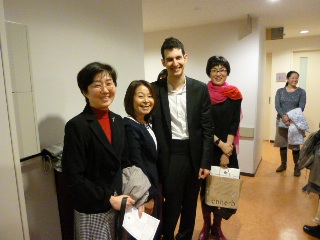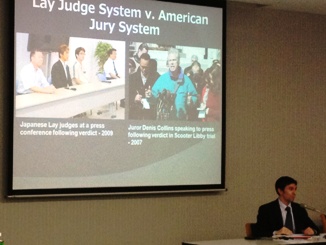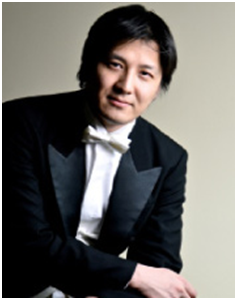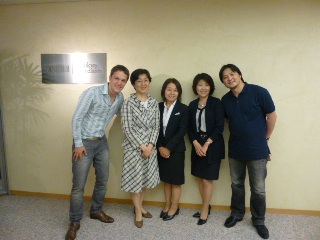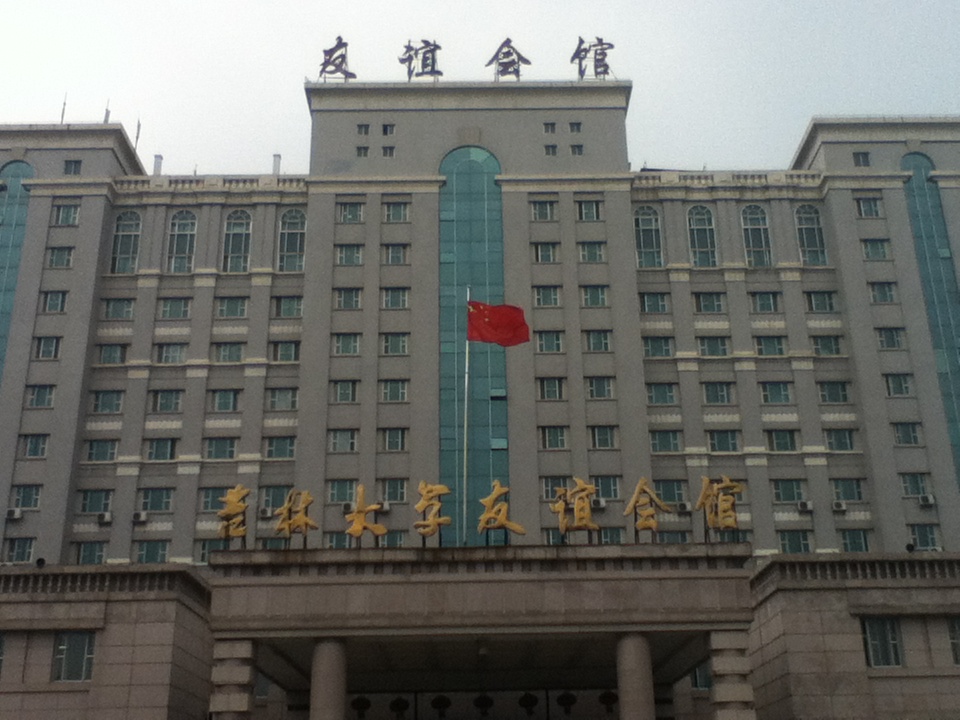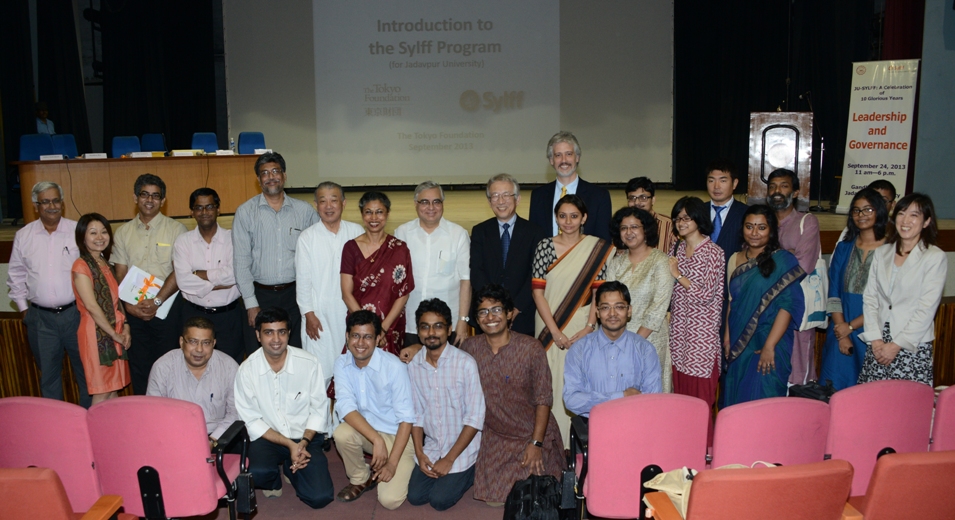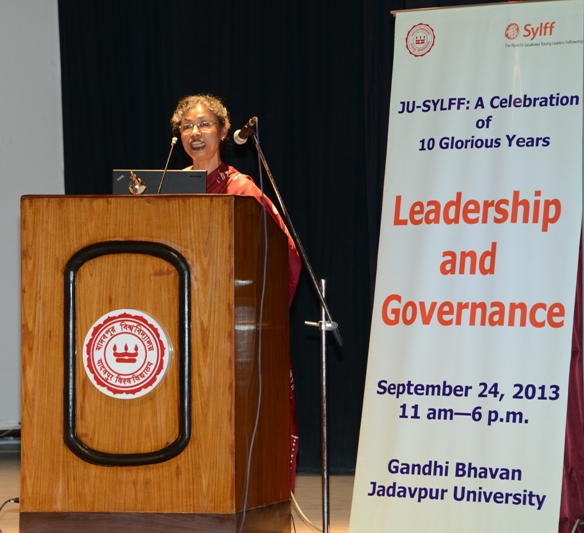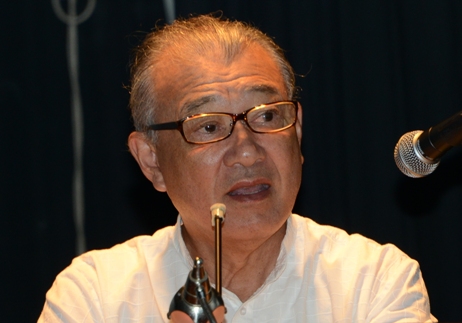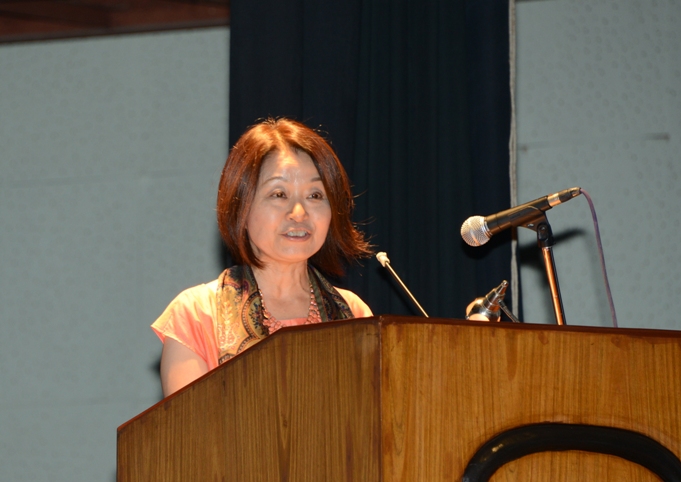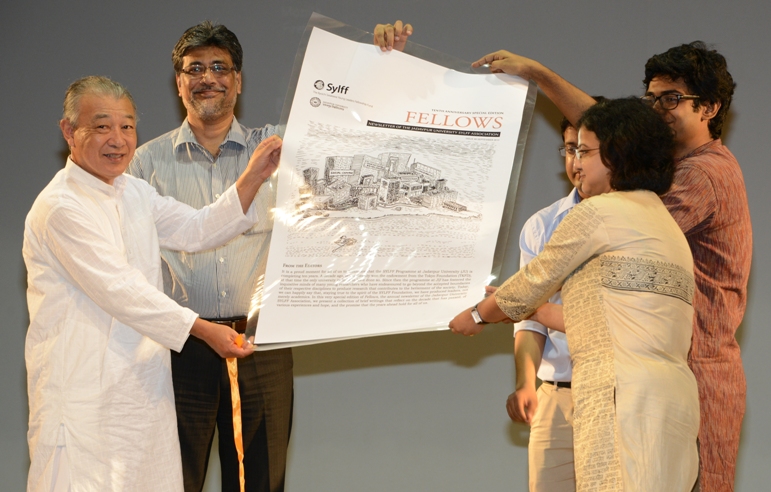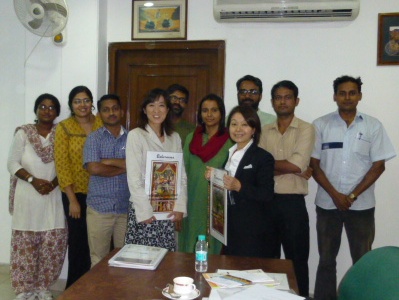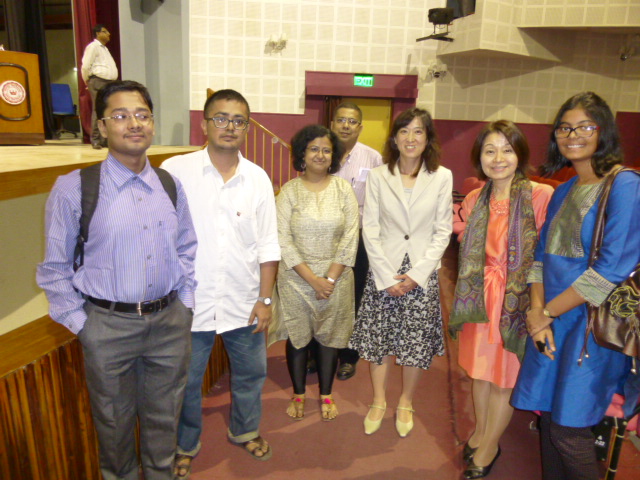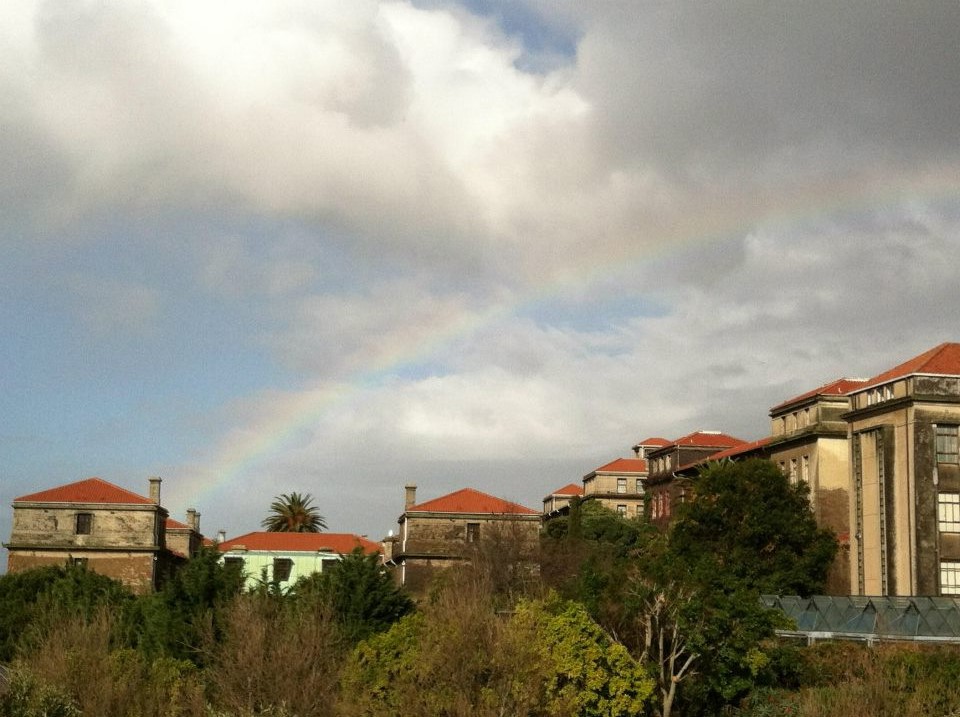In August 2013 Sylff fellow Otieno Aluoka (read his report)—the first recipient of the Tokyo Foundation’s recently overhauled Sylff Leadership Initiatives program—used his SLI award to organize a groundbreaking seminar in Kenya on ways to build a government that works for the people. Mari Suzuki, the Tokyo Foundation’s director for leadership development, offers a first-hand report on this seminal conference, which attracted over 150 civic leaders and public officials from Kisumu County, one of the semi-autonomous entities established under the country’s new democratic constitution.
* * *
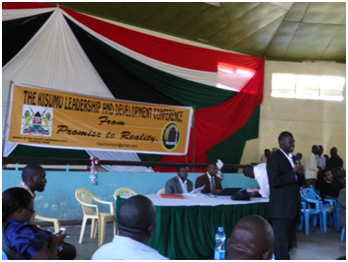
Kenya today is in the midst of a historic transition, the most important change the nation has experienced since achieving independence from Britain 1963. In 2010, Kenya adopted a new constitution centered on democracy and devolution of power. In 2013, the nation’s newly established semi-autonomous counties held their first-ever elections to select representatives to the national legislature under the new constitution.
For such democratic institutions to function as they were intended, however, it is vital that voters and officials understand the principles of the new system and their role within it. This was the aim of the Kisumu Leadership and Development Conference, held on August 26–27 with funding from the Tokyo Foundation’s Sylff Leadership Initiatives support program, administered in conjunction with the Ryoichi Sasakawa Young Leaders Fellowship Fund. The following is a report on the background and outcomes of the conference, which I attended as a representative of the Tokyo Foundation.
Sylff and the Kisumu Initiative
Sylff is a fellowship program established by the Nippon Foundation and administered by the Tokyo Foundation with the aim of “nurturing future leaders who will contribute to the common good of humanity, transcending the confines of nationality, religion, and ethnicity, even while respecting differences in culture and values.” Since its establishment in 1987, Sylff has grown into a fellowship program encompassing 69 institutions of higher education in 44 countries, benefiting more than 15,000 students.

Sugarcane is transported to a mill for processing
One key feature of Sylff is that it follows through with fellowship recipients even after graduation. The Tokyo Foundation’s Sylff support programs provide ongoing assistance designed to help former Sylff fellows grow into effective leaders who can make a positive contribution to their own societies at the local or national level. One such program is Sylff Leadership Initiatives (SLI), which supports various social action projects initiated by current or former Sylff fellows. The Kisumu Leadership and Development Conference was the first project selected for an SLI award since the program was relaunched in modified form in February this year.
The Kisumu conference was organized at the initiative of Otieno Aluoka, a 1999 Sylff fellow at the University of Nairobi in Kenya. Since graduating, Aluoka has worked as a governance consultant to international organizations and foreign governments in Nairobi. At the same time, he has been deeply involved in community action in his native Kisumu, to the west of Nairobi. The networks Aluoka built in both regions helped make the Kisumu leadership conference possible.
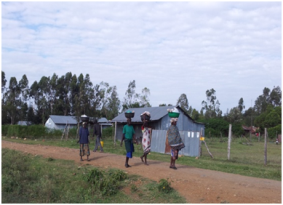
Village women walk with baskets balanced on their heads.
Kenya’s new constitution is a groundbreaking charter that seeks a wholesale reform of the political process. The aim is to move the nation from a system oriented toward preserving a balance of power among Kenya’s 40-odd ethnic groups to one focused on long-term problem solving via democratic processes. Yet the majority of Kenyans continue to vote along strictly ethnic lines. Aluoka realized that Kenyans had to begin casting their votes on the basis of the candidates’ policies, rather than their ethnicity, if democracy was to function properly in Kenya. And for this to happen, elected politicians had to begin rewarding their constituents in undeveloped areas by representing their interests at the national level and working on their behalf to promote development.
With this in mind, Aluoka decided that the best way to contribute to the development of Kenyan democracy was to organize a conference of county-level politicians (all of whom are new on the job), local officials, and community leaders to enhance their understanding of the new constitution, and the role of local leaders within the new system. It was the first such conference ever held in Kisumu—located far from the capital in Nairobi—where democratic reforms have been slow to take hold.
Historical and Political Context
To better appreciate the significance of the Kisumu conference, we should take a moment to establish its historical and political context. The chronology below lists the major historical milestones leading up to the promulgation of Kenya’s new constitution. Brief Political Chronology
1963
Kenya gains independence from Great Britain; early constitution provides for multi-party parliamentary system and elected provincial assemblies.
1966
Kenya become de facto one-party state; provincial assemblies abolished.
1982
After attempted coup d’état, National Assembly officially declares Kenya a one-party state. Country is divided into eight provinces under provincial commissioners, who are appointed by the president.
1991
Constitution revised to permit multi-party elections and limit presidents to two terms.
2002
President Daniel arap Moi steps down after 24 years in office; movement for constitutional reform picks up steam.
2007
Presidential election held under new election law. In post-election violence, some 1,500 Kenyans are killed and tens of thousands are forced to flee their homes.
2010
New constitution enacted with the aim of preventing further violence, devolving political power to local districts, protecting the rights of minorities, and solving long-term problems.
Government under the New Constitution
Previously, Kenya was divided into eight provinces, which were under the direct control of the central government. The new constitution (specifically, Article 11) provides for the devolution of power to the local level. It divides the country into 47 counties, each of which has a locally elected governor and deputy governor. (Governors are typically male, while deputy governors are most often female.) Elections and lawmaking are governed by the rules of multi-party parliamentary democracy. The constitution also features special provisions designed to guarantee that marginalized groups, such as women, disabled persons, and youth, have representation at the local and national levels.
Kenya’s 47 counties are each divided into anywhere from 2 to 12 constituencies, depending on their population, and each constituency is further divided into 5 wards. Each ward elects a representative to serve on the county assembly, which works with the governor to govern the county. In addition to ward representatives, each county assembly has six nominated members chosen to represent marginalized groups. Members are also selected as necessary to ensure that neither male nor female members control more than two-thirds of the seats in any given county assembly.
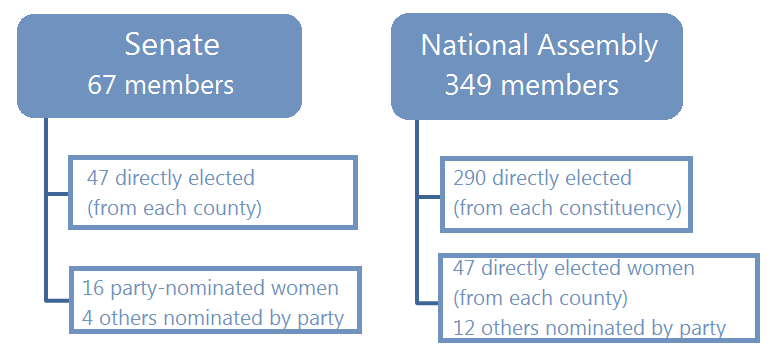
Figure 1. Kenya’s Bicameral Parliament
At the national level, Kenya has a bicameral Parliament made up of the Senate and the National Assembly. The Senate consists of 67 members. Of these, 47 are elected from each county by direct ballot. In addition, 20 seats are reserved for marginalized groups: 16 for women, 2 for youth, and 2 for the disabled. These are filled by party nomination according to each party’s share of the vote.
The National Assembly consists of 349 members. Of these, 290 are elected by popular vote, one from each constituency. Another 47 seats are filled by women elected from each county. Finally, 12 members are selected by party nomination to represent the disabled and other marginalized groups.
The legislators elected from counties and constituencies around the country gather for parliamentary sessions in Nairobi, where they represent the interests of their respective districts while participating in important decisions regarding budget allocations. Kenya’s least developed counties are entitled to allocations from an “equalization fund” amounting to 0.5% of state revenues, but only on request. How much a county receives hinges largely on the efforts of its representatives in Parliament.
Kisumu and the Leadership Conference
Kisumu County is located in western Kenya, far from the nation’s capital. (To the southwest, in neighboring Siaya County, lies the village of Nyang’oma Kogelo, birthplace of Barack Obama senior.) The city of Kisumu, on the shores of Lake Victoria, has historically functioned as a major center of East African commerce. Because of its location along Africa’s largest lake, the area is ideally situated for fishing and fish processing, but the central government has long controlled key concessions on the lake, and economic development has left many of the inhabitants behind. Fishing, sugarcane farming, and rice farming are the county’s principal industries. Kisumu has long been riven by a fierce political rivalry between the Luo and Kikuyu peoples, and these ethnic tensions erupted into deadly violence following the controversial outcome of the December 2007 presidential election. 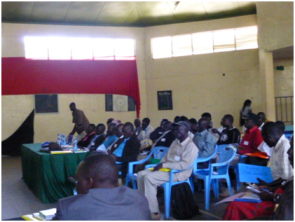
The Kisumu Leadership and Development Conference was held on August 26 and 27 at a community complex in Chemelil ward in Muhoroni, one of Kisumu County’s seven constituencies. The conference drew more than 150 participants, including members of the Kisumu County Assembly, various community leaders from each constituency (including representatives from the farming and fishing industries, business, nonprofit and civic organizations, research entities, the legal profession, the teaching profession, women’s groups, and so forth), and members of the Kisumu County Executive Committee, as well as a number of legal experts and civil rights experts from Nairobi. The region’s ethnic plurality was also on display at the conference: Along with the Luo, who make up the majority of the district’s population, the Kikuyu, Kalenjin, Nandi, and other ethnic groups were well represented.
The plenary sessions featured talks by scholars, members of the Kisumu County Executive Committee, a National Assembly member (from neighboring Siaya County to ensure neutrality), and others regarding the principles of the new constitution and the political and administrative systems it established. Each of the speakers fielded numerous questions from the audience. In breakout sessions devoted to healthcare, education, transportation, water, and law and order, participants discussed the issues facing Kisumu and what must be done to resolve them.
By the end of the two-day conference, the groundwork had been laid for future meetings by citizens interested in formulating concrete proposals in each area and submitting them to the county government. Equally significant was the bonds newly forged among the county’s civic and economic leaders, many of whom met for the first time. Participants from diverse sectors pledged to work together to make the new constitution’s promise a reality.
A number of the conference participants provided positive feedback regarding the event and its significance. The following is a sampling.
Teresa Okiyo, a research officer at the Kenya Agricultural Research Institute, noted that very little information had reached Kisumu regarding the new constitution and the process of devolution, and she praised the conference for helping participants see what they needed to do to make their voices heard in government. (Okiyo has studied paddy farming in Yamagata Prefecture under a Japan International Cooperation Agency training program.)
Dr. Rose Kisia, Kisumu County Executive Committee member in charge of commerce, tourism and heritage, called the conference an important first step that had made Kisumu a model for other counties to follow.
Legal Resources Foundation Trust director Janet Munywoki, who arrived early in the morning on the first flight out of Nairobi, noted that she had traveled to Kisumu at her own expense, convinced of the importance of such a ground-breaking conference. She stressed the need to hold similar gatherings throughout Kenya.
Significance and Impact
Returning to Nairobi after the conference, I had the opportunity to speak with John Smith-Sreen, director of democracy, rights, and governance for USAID (US Agency for International Development) in Kenya. Noting that the new constitution had been 10 years in the making, Smith-Sreen stressed the importance of the next three to five years in laying the groundwork for a functioning democracy.
Political instability, corruption, and inefficiency have long stunted Kenya’s growth and development. Fair democratic elections and the devolution of power to the counties are critical to the nation’s future economic growth. This is why American, British, Canadian, European, and UN agencies are actively involved in supporting Kenya’s reforms. USAID has placed special emphasis on promoting effective coordination between the state and the counties. But another key task is to ensure that civil-society organizations are informed about the new constitution and to encourage their political participation at the local level.
By promoting public understanding of devolution and helping to forge linkages between the county government and the local citizens, the Kisumu leadership conference has made an important contribution to the local community and Kenyan society as a whole. It is a contribution made all the more significant by the fact that it occurred when it was most needed. In this period of sweeping change for Kenya’s government, society, and economy, the nation has scant resources to spare for such consciousness-raising efforts. This is why Otieno Aluoka’s initiative was such an effective use of SLI funds.
A Role Model for Young Leaders
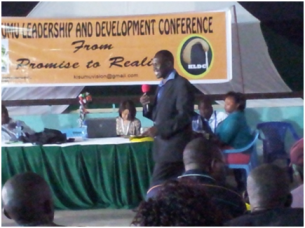
Otieno Aluoka at the Kisumu leadership conference.
Otieno Aluoka, who successfully organized the Kisumu leadership conference using a Sylff Leadership Initiatives grant from the Tokyo Foundation, has an excellent understanding of the Sylff mission to “nurture future leaders who will contribute to the common good of humankind.” Aluoka has been actively involved in the Sylff network for 14 years, ever since receiving a fellowship at the University of Nairobi. In March 2008, in the wake of the violence precipitated by the December 2007 election, Aluoka submitted an article titled “Kenya’s Post-Election Violence” to the Sylff website, in which he argued eloquently for the need for stronger legal and judicial institutions to create a just society in Kenya.
An anthropology major at the time he received his fellowship, Aluoka put his education to good use, subsequently devoting himself to law studies at the University of Nairobi. More important, he has used the fruits of these academic labors not merely to lift himself up but to build a better society. This is precisely the outcome envisioned by the Sylff program, and it is this impulse that SLI and other Sylff support programs were designed to encourage. Listening to the lively and passionate discussion among participants at the Kisumu conference—described by Aluoka as the starting point for the devolution of power in Kisumu County—I was struck by how closely his initiative dovetailed with the purpose of the Foundation’s Sylff support programs. This was truly money well spent.
By supporting the activities of Sylff fellows after they go out into society, SLI complements the fellowship program in an important way, defining Sylff’s long-term aims and expectations and encouraging concrete social action. As the program continues, the success stories of people like Otieno Aluoka will provide inspiration for other Sylff fellows and contribute further to leadership development around the world.
Leadership development is a long-term undertaking. But the young leaders that the Sylff program has nurtured over the years have continued to grow, and last August I was able to watch as one of those leaders made an important and timely contribution to his nation’s development during a period of political and social transformation. I am hopeful that Otieno Aluoka’s example will serve as a stimulus and encouragement to young leaders in Kenya and around the world.
Postscript
Following the conference, Otieno Aluoka compiled a list of proposals based on the discussions held at the conference and submitted them to the Kisumu County Executive Committee on September 9, with the cooperation of Chemelil ward representative Joseph Osano, who has pledged to push for their adoption. Issues and ideas raised at the conference received coverage in three of Kenya’s national newspapers, and they are already beginning to influence policy makers at various levels.

